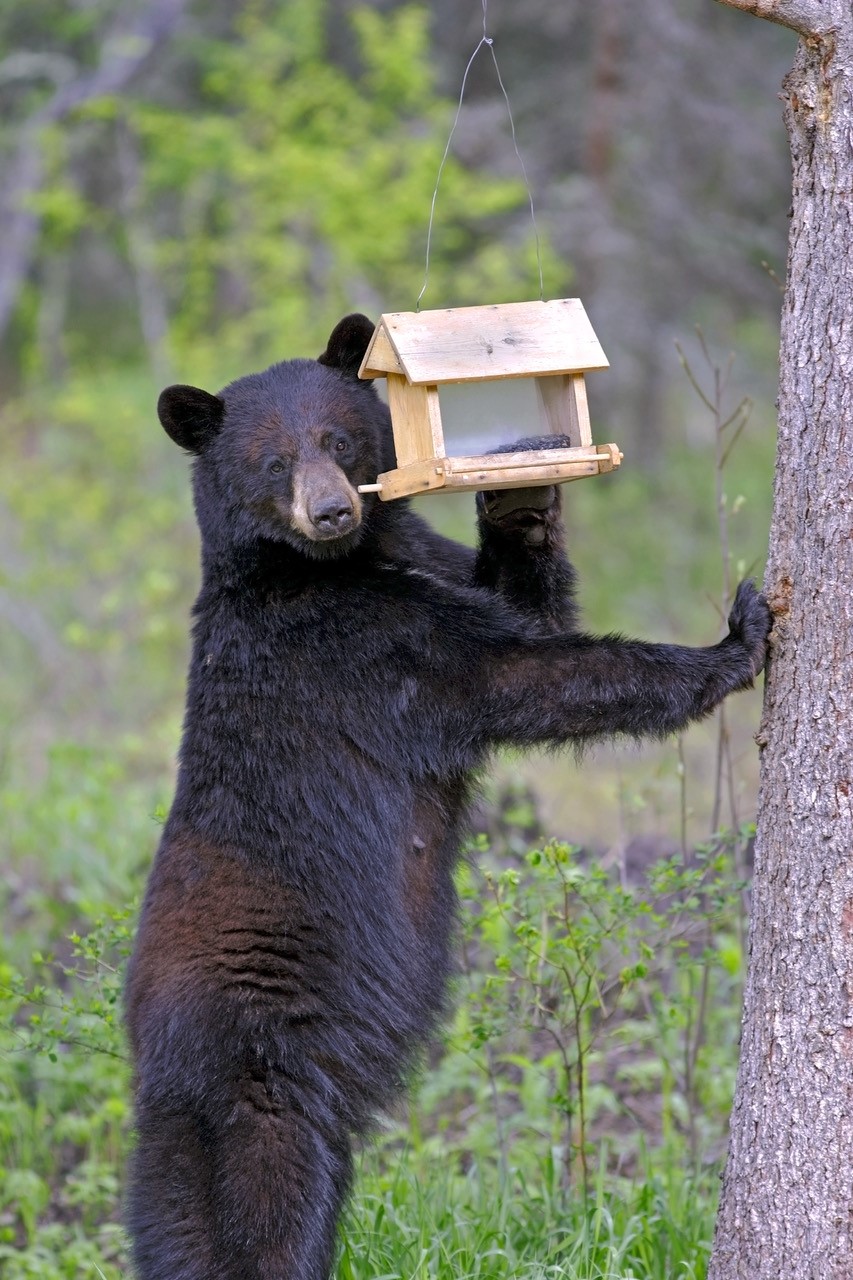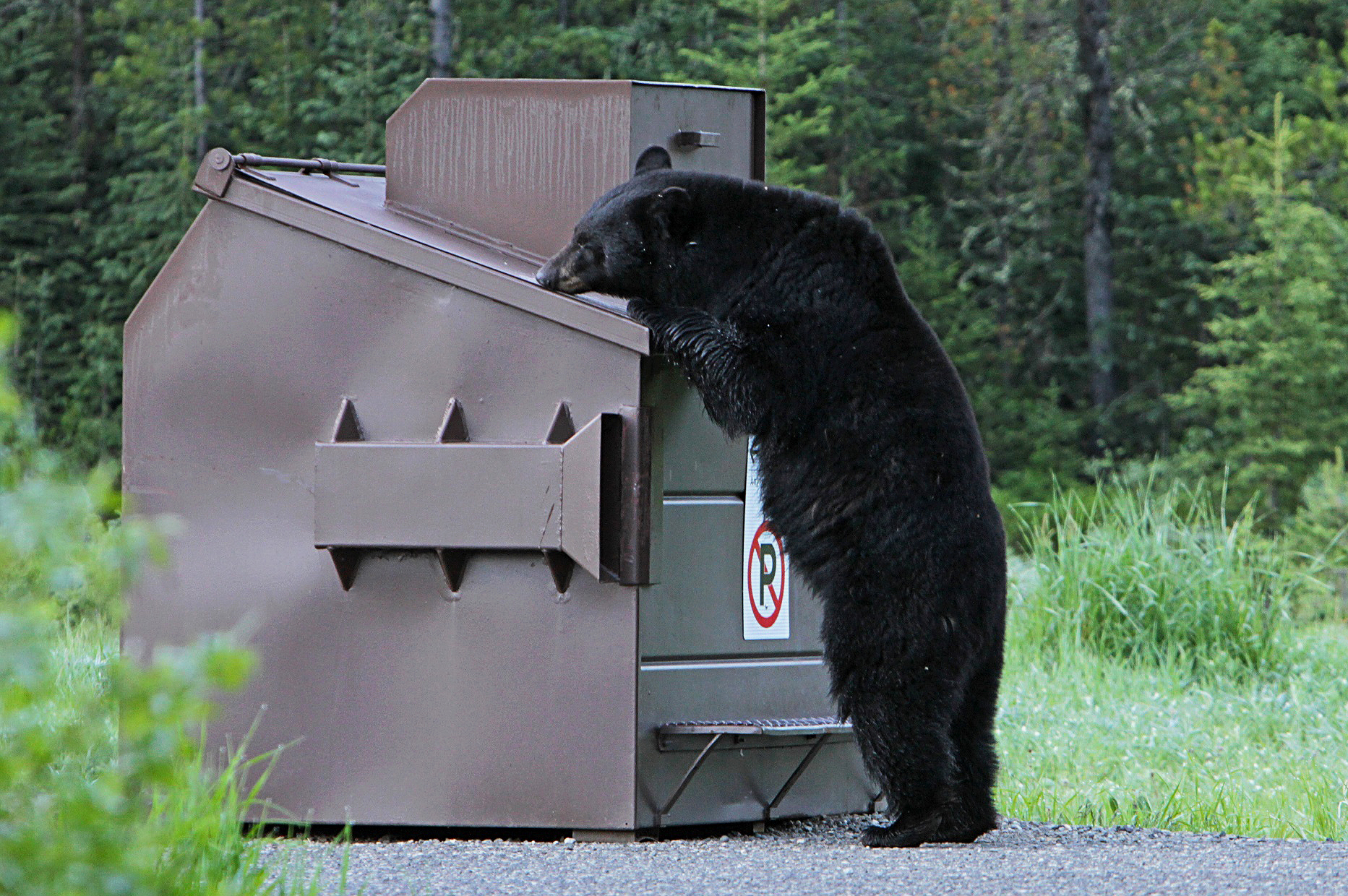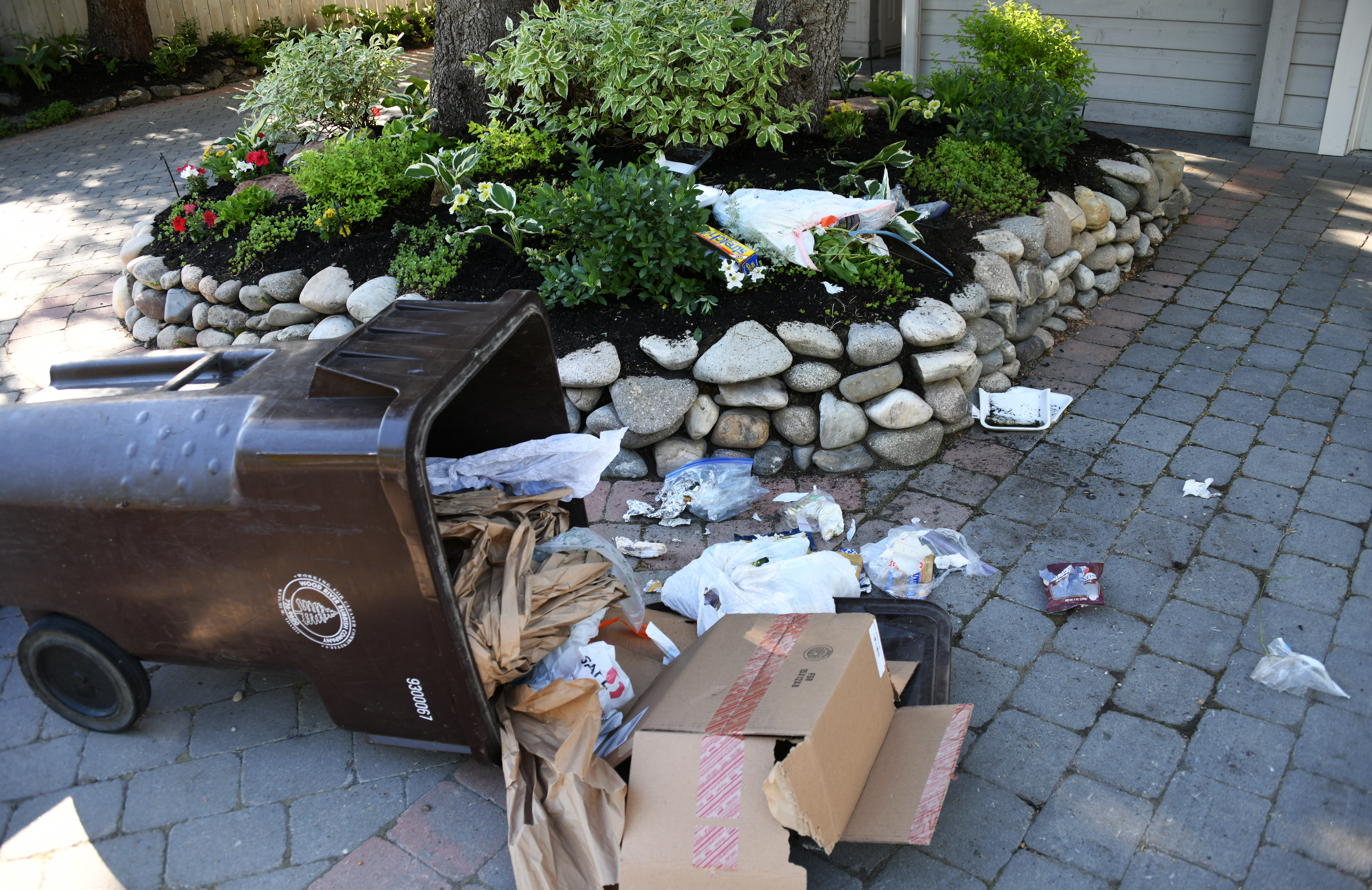With fall approaching, Idaho’s black bears are on the move and preparing for denning season, seeking out and gobbling up food to help them pack on the pounds.
This annual race to put on as much weight as possible before going into hibernation begins in mid-summer and lasts into early fall. Not coincidentally, this time of year is when Fish and Game staff receive the most reports of black bears causing problems in Valley County neighborhoods and elsewhere in Idaho. This year is no exception.
“We’ve had a ton of reports of problem bears coming in from all over the Valley County in the past few weeks,” said District Conservation Officer Marshall Haynes. "And the majority of these bear problems are created by bad human habits in our communities.”
Conflicts happen when bears score an easy meal in town
Heading into the winter, black bears can pack on as much as 30 pounds per week and add about 4-5 inches of body fat prior to denning. To do that, they need to consume around 20,000 calories per day, so bears are continually on the hunt for food that’s high in protein and fat.
In Idaho mountain towns like McCall, Donnelly and Cascade, which sit right in the middle of bear habitat, bears will always move through town looking for good smells and food. Unfortunately, they often find human food sources – such as garbage, pet food or bird feeders – all of which are high in calories and readily available. That’s when the problems start.

“If they find something tasty, they’ll remember that and visit again. If they continue to find food, your house and your neighborhood will become a regular stop on their circuit,” said Regan Berkley, regional wildlife manager in the McCall Subregion.
It usually goes from bad to worse
Finding food inadvertently provided by people is bad for bears and people, and it often ends with a dead bear because when the animals find a regular food source in neighborhoods, they become less fearful of people.
“They can grow impatient or even pushy in their search for food and may not leave when you try to scare them away, because the promise of food overcomes their fear of people,” Berkley added. “And that is a dangerous situation.”
When it becomes evident that a bear has become excessively habituated to that food source, or has lost its wariness of humans, biologists and conservation officers often have no choice but to trap and kill the bear. These bears cannot be moved, because research shows they will quickly travel long distances to seek out human foods in their new locations.
“We cannot responsibly move a habituated bear knowing it will likely visit the nearest campground or neighborhood,” said Haynes. “This is why we use the adage, ‘A fed bear is a dead bear.’ Once a bear becomes habituated, that is almost always the only option, and it’s the last thing any of us want to do.”
Keeping bears wild and away from homes takes effort and cooperation
Luckily, there are a lot of things that people can do to prevent black bears from becoming habituated, protecting both the residents in their neighborhood and the black bears moving through it.

The key to keeping Idaho bears wild is to not allow them to access human food sources around neighborhoods and homes. Black bears have been roaming North America for the last 500,000 years – they are well-equipped to survive without human food by foraging primarily on grasses, buds, forbs, insects, berries, and occasionally meat.
Bears are extremely intelligent and can learn very quickly to associate people with food. The presence of unsecured human food sources like residential garbage, bird feeders, dog food, chicken coops, or even fruit trees causes human/bear conflicts that rarely end well for the bears, and often means a messy, and likely unsafe, situation for a property owner.

Following the steps below helps protect both you and the bears:
- Remove bird feeders between April and mid-November
- Feed pets inside
- Get a bear-resistant trash can and use it properly; don’t tamper with latches, prop them open, or over fill them. If you don’t have a bear-resistant can or if there is too much trash to fit in the can, keep it in a garage until the morning of pickup.
- Do not keep coolers, refrigerators, or freezers outside
- If a bear has already visited your place and found food, take the above steps right away. The bear will likely pay you a couple more visits, but if it finds no food, it will eventually move on
- Valley County residents can report bear problems to Fish and Game staff in McCall so that they can monitor the situation: (208) 634-8137

